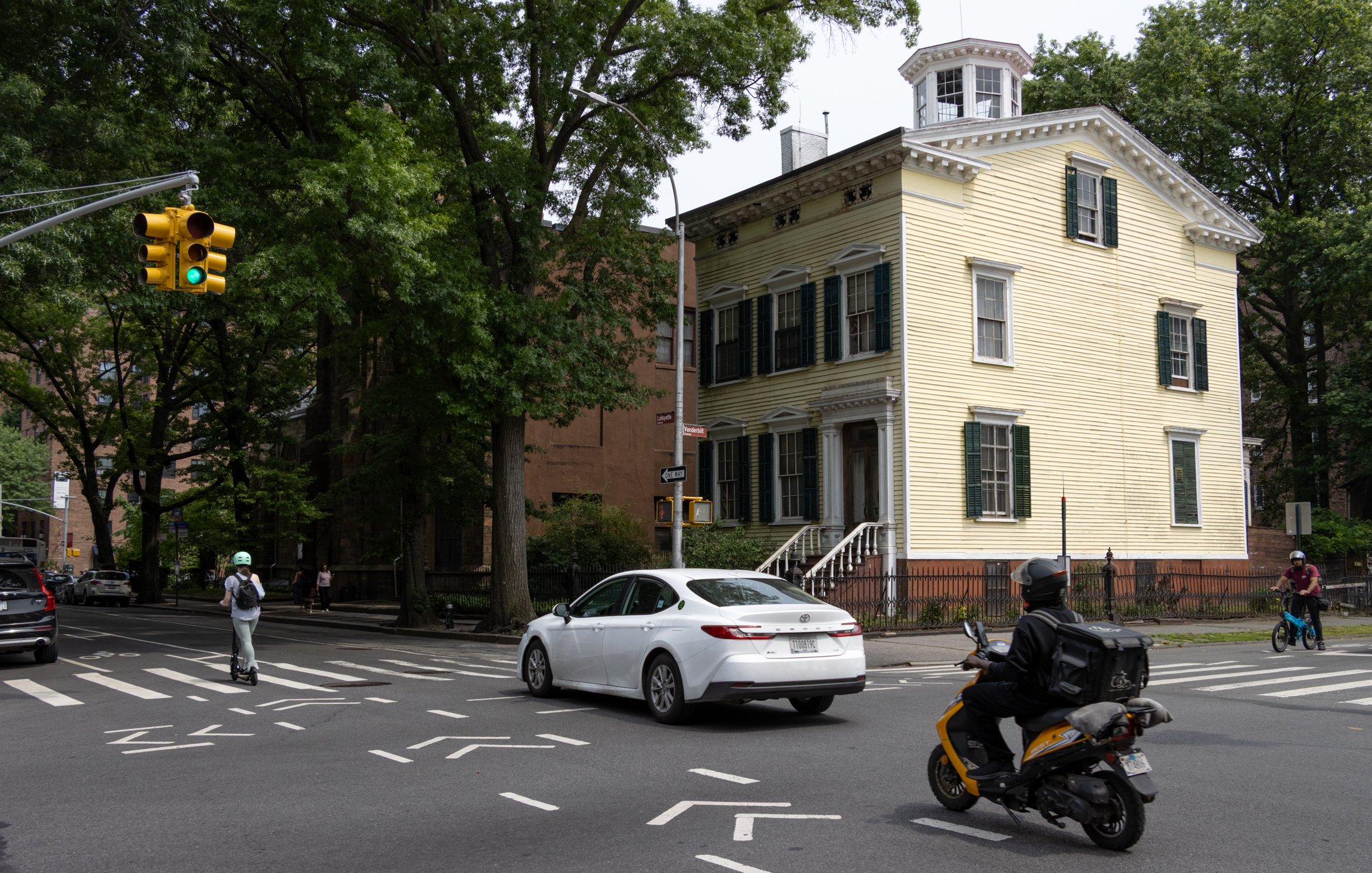Rent Board Chief on Shifting Onus from Landlords
The Observer ran an interesting interview yesterday with the head of the Rent Guidelines Board, Marvin Markus, that lays out some of the common-sense problems with rent control and stabilization. If we as a society deem it worthwhile to subsidize certain people (and clearly there are lots of reasons to do so), then the cost…

 The Observer ran an interesting interview yesterday with the head of the Rent Guidelines Board, Marvin Markus, that lays out some of the common-sense problems with rent control and stabilization. If we as a society deem it worthwhile to subsidize certain people (and clearly there are lots of reasons to do so), then the cost should be borne by society as a whole not individual landlords, argues Markus. “There are poor tenants, they should be protected, but the individual owner is not the one that should protect them. The population at large clearly should be the ones footing the bill,” he says. And how would be do that? “One suggestion is a rent tax/surcharge of some limited amount, on all rents in the city … and all co-op and condo charges in the city. … It’s very important for the city of New York that there be a mixed income base—from an economic standpoint; from a social standpoint—and we want to make sure, I want to make sure, that that continues.” While landlords make easy political targets, it’s hard to make any rational arguments in favor of the current system: Lifetime entitlements makes no sense at all; nor does a system that dis-incentivizes landlords from maintaining the housing stock.
The Observer ran an interesting interview yesterday with the head of the Rent Guidelines Board, Marvin Markus, that lays out some of the common-sense problems with rent control and stabilization. If we as a society deem it worthwhile to subsidize certain people (and clearly there are lots of reasons to do so), then the cost should be borne by society as a whole not individual landlords, argues Markus. “There are poor tenants, they should be protected, but the individual owner is not the one that should protect them. The population at large clearly should be the ones footing the bill,” he says. And how would be do that? “One suggestion is a rent tax/surcharge of some limited amount, on all rents in the city … and all co-op and condo charges in the city. … It’s very important for the city of New York that there be a mixed income base—from an economic standpoint; from a social standpoint—and we want to make sure, I want to make sure, that that continues.” While landlords make easy political targets, it’s hard to make any rational arguments in favor of the current system: Lifetime entitlements makes no sense at all; nor does a system that dis-incentivizes landlords from maintaining the housing stock.
Rent Board Chief Markus Pleads for ‘Rationality’ [NY Observer]
Photo from the Tenement Museum





When Charles Rangel and David Patterson have rc apartments, there’s something wrong with the system. While I believe our government should make provisions for folks who need assistance, has rent control and rent stabilization have proven to be a lousy, unacceptable solutions.
Does anyone really think they will EVER get rid of RC/RS laws in NYC? It seems like whenever they try to change anything pertaining to these laws all hell breaks loose.
Ironballs – You are so right. Life’s losers are the 60 and 70 somethings hunkered down in their rent stabilized apartments on the Upper West Side, when they could have bought a Classic 6 in the late 70’s for, I’m guessing, less than $100,000.
Ironballs – just to be fair – it is possible (during non-bubble times) to buy properties under RS and make a tremendous amount of money – all you need is patience, tons of cash (to invest in improvements) and effective management plus some luck (i.e. no $150 barrel oil, no professional deadbeat tenants, no more LL 11/98 type expenses mandated by NYC, etc…).
Buying with the idea that RS/RC would change in the LL favor is frankly nuts – the real fear is the the laws are going to be changed decidedly in the tenants favor – in which case all the patience, reinvestment and good management may not matter – and in that case many LLs will turn to their lenders and say – “Congratulations, now you own this POS!”
Ironballs-On that you and I both agree- and about how rs/rc is abused. I don’t think the system is good or fair and the renters who abuse it ruin it for everyone.
I have been very lucky most of my life with my landlords- maybe because they are all small landlords, not big managing agencies. And right now I rent from a good friend- and I see how hard it is to be a landlord. I’ve never made big bucks (so much for the myth of the rich creative professional ) so having a rs apartment was a godsend- and so was my landlady. I took care of a lot of things around the building to help out and she was great.
why are people saying that rents went down in boston on market rate apartments when rent stabalization and control was abolished, when that is in fact not what happened at all. rents did not go down on market rate apartments. it would make sense that they did, but they didnt. also i am only repeating what ive heard many times about boston, so if im wrong sorry, i really have no waqy of backing up what i heard.
*rob*
dirty hipster- most LL are not “losing” money off of RS/RC apartments – on the contrary they may be making a fortune – as etson said above – most LL bought with a RS rent roll and therefore paid less for the building and thereby providing for a return (and if you properly reinvest and run a good operation – this small margin can be greatly expanded)
That being said the RS/RC still creates crazy situations and punishes the small operator (and his tenants) who does not have the resources or administration to reinvest, improve and manage the complicated system. Not to mention that it creates a perpetual shortage of apartments as people in below market situations horde their leasehold for eternity.
The point of Markus’ comments is that RS is being miss used – it SHOULD NOT be a tool of affordability. (think about it – why shouldn’t a vacant apartment simply be rented at market rate? – why should tenants have to get lucky, make a payoff, or otherwise have a connection to get one of these vacant below market apartments – while the rest have to pay a higher market rent?)
This point is important now – not because there is a push to eliminate RS but rather because the legislature appears poised to increase RS control in the name of affordability – when it is completly the wrong tool to do so, and it will result in many properties becoming unprofitable (“changing the deal”) and may lead to abandonment and neglect.
Not to mention, I always assumed the issue would be fought to the Supreme Court and be outlawed as an unconstitutional abuse of private property rights . . .
bxgrl,
Sorry, I don’t mean to be an assh*le. The stupidity of rs/rc admittedly drives me nuts.
What defense is there for taking property rights away from rightful owners and giving them to folks who never took the risk of buying anything?
Section 8 has flaws but works because all tax payers support it.
Most landlords, myself included, bought multifamily property in NYC with the just assumption that eventually the rs/rc laws would be overturned because they make no sense for society at large — hurting private landlords as well as the average renter far more than they help the lucky rs/rc few.